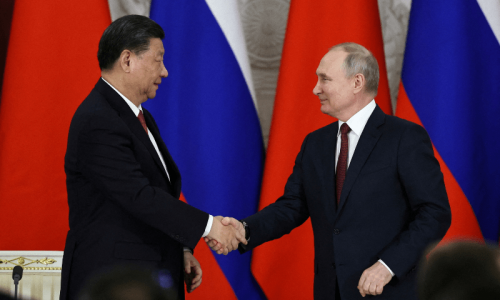LONDON, Nov 2: The UK has issued a direct challenge to China and Russia over regulation of the internet, with the British foreign secretary William Hague insisting that cyberspace must not be “stifled by government control or censorship”.
In a strongly worded opening address to an international conference hosted in London, Hague told delegates that the internet “must remain open and not become ghettoised” — rebuffing the notion that new international treaties were needed to police online activity.
“Nothing would be more fatal or self-defeating than the heavy hand of state control on the internet, which only thrives because of the talent of individuals and of industry within an open market for ideas and innovation,” he said.
Hague told delegates that cyberspace should not be “subject to separate rules and processes in different regions set by isolated national services, with state-imposed barriers to trade, commerce and the free flow of information and ideas”.
This, he said, would be deeply counter-productive. Both China and Russia have pushed for new international treaties governing cyberspace. China has also been heavily criticised for censoring the internet by blocking news or comment that it deems damaging.This summer, the UK premier David Cameron appeared to blame social media for the spread of the London riots, raising the prospect that the government may try to shut down sites such as Twitter during times of unrest.
Hague, though, said that it was his “passionate conviction that all human rights should carry full force online”.
He added: “Not just the right to privacy, but the right to freedom of expression. Human rights are universal. Cultural differences are not an excuse to water down human rights ... We reject the view that government suppression of the internet, phone networks and social media at times of unrest is acceptable.”
The London Conference on Cyberspace was the brainchild of Hague, and delegates from more than 60 countries, as well as pioneers of the internet, such as the founder of Wikipedia, Jimmy Wales, and the president of Facebook, Joanna Shields, among the speakers.
Cybercrime, the spread of damaging malware, and the use of cyber warfare by states have pushed questions about the rules governing the internet to the fore.—Dawn/Guardian News Service











































Dear visitor, the comments section is undergoing an overhaul and will return soon.